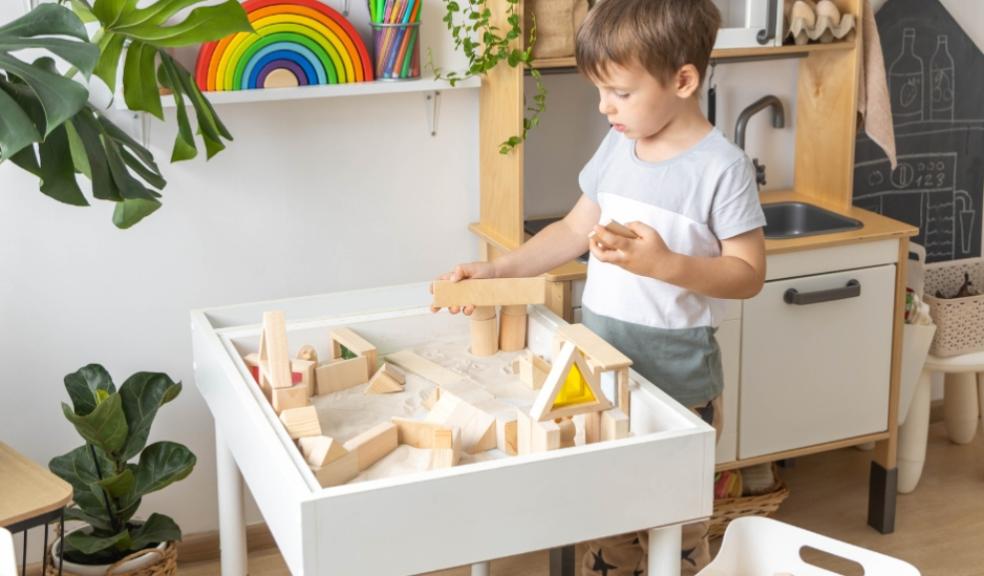
Tips for Introducing Montessori Learning Methods to Your Child's Daily Routine
Introducing Montessori learning methods into your child's daily routine can be rewarding and transformative. Rooted in educational philosophy, the Montessori Method focuses on hands-on learning and self-discovery. It is centered around the child's individual needs and pace. Fundamental principles include fostering an environment that encourages independence, self-drive, and a genuine love for learning.
By integrating these techniques at home, you can help nurture your child's curiosity, develop practical life skills, and foster social responsibility—all of which contribute to holistic child development. The aim is to establish a structured yet flexible framework that encourages children to explore their interests, build confidence, and cultivate self-discipline and social responsibility.
10 Tips for Introducing Montessori Learning Methods to Your Child's Daily Routine
1. Create a Prepared Environment
Start by designating a dedicated learning space for your child. Ensure the materials are within their reach, using child-sized furniture and tools to make the environment inviting and accessible. Aim for a clean, organized, and aesthetically pleasing setting to enhance the beauty around them and foster focus and independence.
2. Incorporate Practical Life Activities
One of the hallmarks of Montessori education is the integration of practical life skills. Get your child involved in daily chores such as cooking, cleaning, and gardening. These activities instill a sense of responsibility and enhance fine motor abilities and coordination between hands and eyes. Remember to encourage self-care activities like dressing and personal hygiene, which can remarkably boost your child's confidence and autonomy.
3. Follow the Child's Lead
Observe your child's interests closely and provide materials that align with their current fascinations. This could range from art supplies for a budding artist to measuring cups for a little chef. Allow them uninterrupted time for exploration and discovery; this unstructured time is crucial for nurturing their natural curiosity and deepening their learning experiences.
4. Encourage Independence
Montessori education strongly emphasizes independence. Allow your child to complete tasks independently, stepping in only when necessary. Use positive reinforcement to build their self-esteem, making them feel capable and valued.
5. Use Learning Materials that Support Sensory Exploration
Introduce Montessori-specific learning materials such as sensory bins, puzzles, and other educational toys. These tools are designed to support sensory exploration, which is pivotal in early learning stages. Make it a practice to rotate these materials regularly to keep the environment stimulating and engaging.
6. Establish a Consistent Routine
A consistent routine provides a sense of safety and stability. Set regular times for learning activities, free play, and rest. This helps your child know what to expect and instills discipline and time management from an early age.
7. Model Behavior and Attitude
Children learn a lot by observing adults. Demonstrate behaviors and attitudes you wish to cultivate, such as patience, respect, and a deep-seated love for learning. Instead of instructing, guide them, fostering a sense of autonomy and self-direction.
8. Emphasize Process Over Outcome
Value your child's effort and improvement rather than focusing solely on results. Motivate them to reflect on their learning experiences. This approach builds resilience and teaches them the importance of growth and learning from mistakes.
9. Integrate All Areas of Learning
Aim for a balanced approach that includes academic, practical, and creative activities. This ensures holistic development, incorporating physical, emotional, and cognitive skills. Consider activities like storytelling, art projects, problem-solving tasks, and physical exercise to offer a well-rounded learning experience.
10. Communicate and Observe
Engage in open dialogues with your child about their interests and feelings. This will help you understand their needs and preferences and strengthen your bond. Regularly assess their progress and be willing to adapt to the environment and activities as needed to better suit their evolving needs.
Benefits of Montessori Learning Methods
Montessori learning methods bring a wealth of benefits to your child's development. They promote independence by allowing children to manage their tasks, which builds self-confidence and decision-making skills. This approach encourages curiosity and a love for learning, which is driven by the child's interests and emphasizes experiential, hands-on learning.
Additionally, it develops practical life skills through engagement in real-life activities, teaching responsibility, organization, and concentration. Social and emotional development is also fostered with mixed-age groups that encourage mentoring and cooperation and a focus on respect and empathy, ensuring a well-rounded growth for your child.
Incorporating Montessori methods into your child's daily routine can have lasting benefits. Remember to create a prepared environment, involve your child in practical life activities, and follow their interests. Encouraging independence and using sensory learning materials will stimulate their curiosity. Gradual implementation, coupled with consistency and patience, is key. Embrace flexibility and stay observant to adapt to your child's evolving needs. Happy Montessori parenting!














